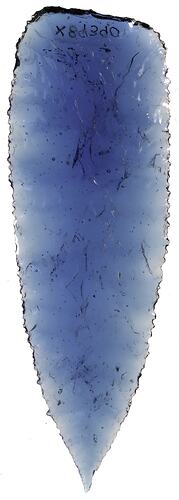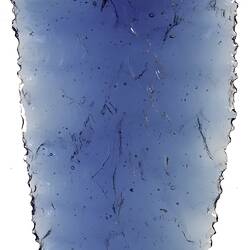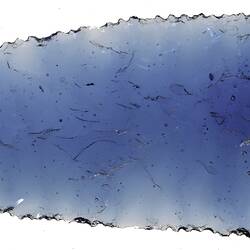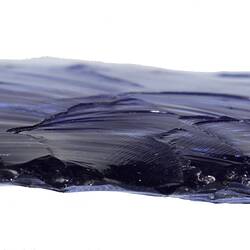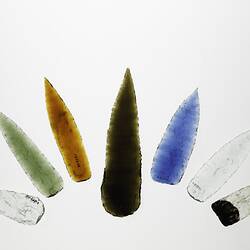Summary
Aboriginal cutting blades or 'Kimberly Points' from northern Western Australia are considered to be among the finest flaked spear points made by Aboriginal people anywhere on the continent. Varying in size from two to twenty centimetres in length, their extremely fine saw-like edges have made these artefacts highly prized collection items. They are usually made from glass, derived from bottles or ceramic insulator material that entered the Kimberly region in the mid nineteenth century following European settlement. Some archaeologists argue that the points were made exclusively for sale to tourists and museums (as they only appeared in the archaeological record after the advent of Europeans), while others suggest that similar blades were made using stone for thousands of years and that the Aboriginal manufactures simply switched to glass in the nineteenth century as it produced a better cutting edge. Whatever the case, Kimberly Points bare witness to the elaborate skills and refined aesthetic sensibilities of their Aboriginal makers.
Local Name
Jimbila
Physical Description
Kimberley point made from blue glass. Long pointed and leaf shaped. Biface, trimmed on both surfaces. Butt end is straight and the serrated edges end in a pointed tip.
More Information
-
Object/Medium
Kimberley point
-
Maker
-
Cultural Groups
-
Locality
Specific locality unrecorded, Kimberley, Western Australia, Australia
-
Overall Dimensions
40 mm (Width), 5 mm (Depth), 120 mm (Height)
-
Classification
-
Maker
-
Clan/Language Group
-
Place Made
-
Indigenous Region
-
Keywords
-
Type of item
-
Discipline
-
Category
-
Collecting Areas
